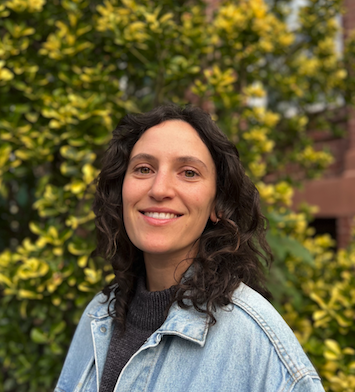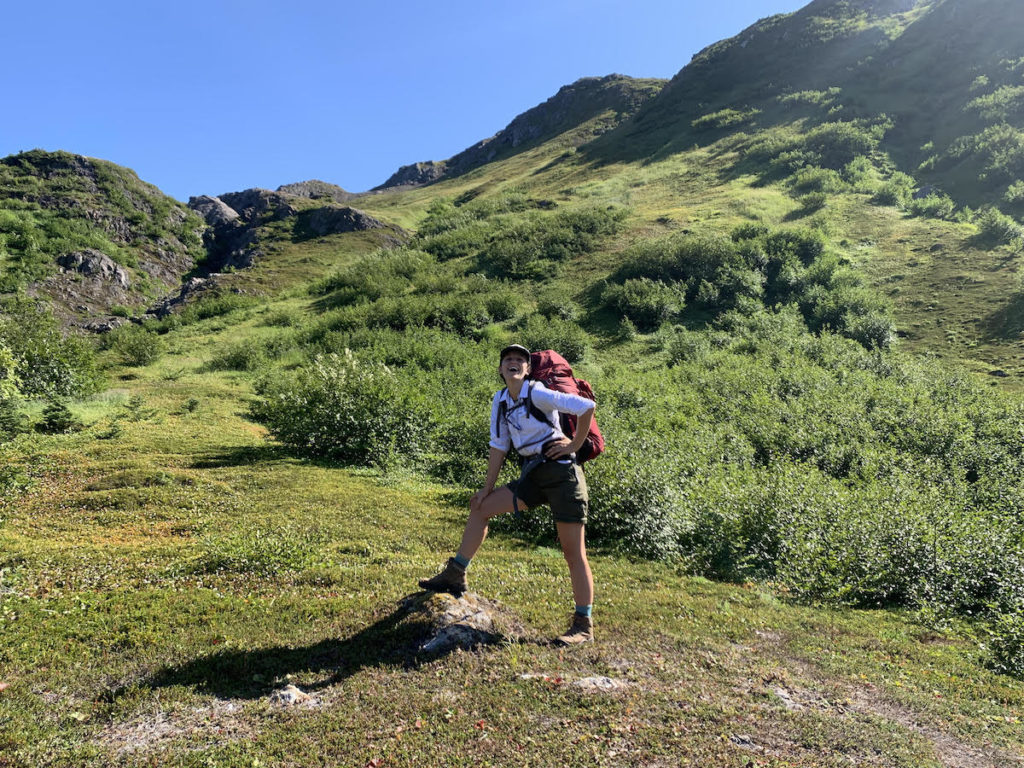Hannah Wilton
Development and Program Manager
Hannah Wilton (She/Her) plays a key role in OAEC’s fundraising activities as well as the development and success of its diverse programs, partnerships, and fiscally sponsored projects. Previous to her work at OAEC, Hannah served as a writer and producer for the Sacred Land Film Project’s Audio Archive and For The Wild podcast where she developed a field series focused on conservation issues and Indigenous land rights across the Pacific Northwest. She also supported For The Wild’s various land-based initiatives, including a campaign to protect and uphold Roadless Rule in Southeast Alaska’s Tongass National Forest to prohibit road construction and commercial logging across 9 million acres of forest. In 2018, Hannah graduated cum laude from Wesleyan University with a dual degree in American Studies and Environmental Studies. She is dedicated to using storytelling to reimagine ways of thinking and being in service of a more just and ecologically regenerative future.
On Staff Since: 2021 Email > Phone: x115

In Their Own Words
My Background
I was born and raised in rural Northern California on the traditional homelands of the Coast Miwok, amongst a family and community of artists. From towering redwoods to seaweed waters, the places of my childhood sparked an everlasting love for the coastal temperate rainforest and the natural world. Through my adolescence and into my adult life, I came to appreciate my early access to nature, good food, and clean water as an immense privilege – and a birthright of all people. My experience has since grown into a lifelong inquiry into how inequality and oppression map onto the contours of economy, social movements, governance, and relationships – and how we might undo and reweave ourselves into mutual liberation.
My Passions
Backpacking and spending time in the wild, processing and preserving food, making art, and flirting with new hobbies.
My Work At OAEC
I wear a multitude of hats at OAEC, managing the necessary behind-the-scenes work related to grant writing and reporting, donor relations, and fundraising events. I also play an active role in supporting OAEC’s various programs on-site, online, and in the field with a particular focus on our Wildlands Program, which strives to elevate holistic stewardship, biocultural diversity, and social justice as inseparable from ecological restoration. At its core, I see my work at OAEC as bringing to life the incredible wealth of educational programs, movement and policy initiatives, and land-based projects in order to inspire others.
Why My Work Matters
In part, my work builds the capacity of OAEC to stretch its many magnificent tendrils out into the world to strengthen the global fabric of social and environmental movements. OAEC offers unique, place-based solutions – from community governance and permaculture design, to food systems and seed saving – that reflect the rich diversity of who we are and where we are. Both as a retreat center and a suite of programs, OAEC offers people the tools, inspiration, and ecological frameworks to create sustainable movements and communities on their own terms, wherever they are. The natural world is colorful, iterative, and abundant beyond belief, and we strive to partner and align with these systems towards greater healing and resilience.
My Favorite Resiliency Resource
I often find myself coming back to Robin Wall Kimmerer’s book, Braiding Sweetgrass, a reminder that plants and animals are our oldest teachers.
What I Obsess About
Sniffing out the best small-town food co-ops, dental hygiene, and making playlists.







